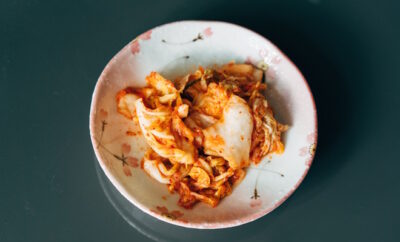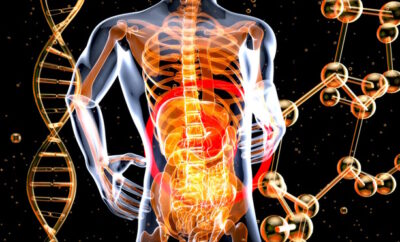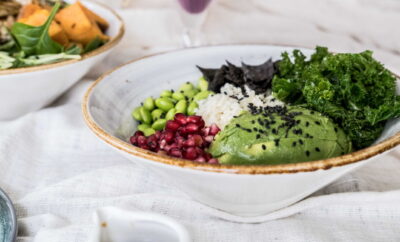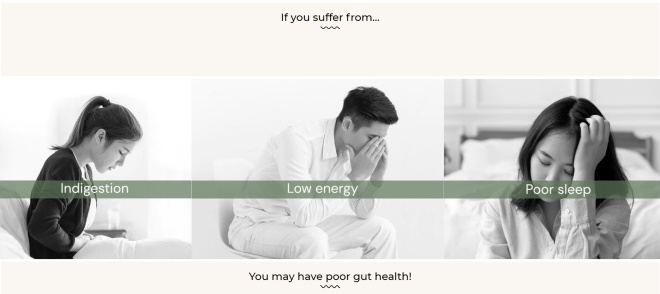
Health x Wellness
BIO & ME launches personalised probiotics range to improve gut health
The probiotics are curated with formulation blends based on two years of research across hundreds of Asian gut profiles and offers a targeted solution customers based in the Asia Pacific region.
According to a 2016 study, 20.9 percent of Singaporeans suffer from irritable bowel syndrome (IBS). The study shared IBS was associated with pet ownership, antibiotic usage, late dinner,(after 9 PM) and consumption of Western meals, coffee, and bread.
While the exact causes of IBS are unknown, there are known factors associated with the condition such as the change or imbalance in gut microbes. These microbes serve an important role when it comes to digestion. They help absorb energy from food, and are essential in helping us take in nutrients. For example, Gut bacteria can help us break down complex molecules in meats and vegetables. Microbes include beneficial bacteria, fungi and viruses, and research shows that these microbe levels are different in those with IBS. These microbes exist in an environment within the body termed the gut microbiome.
A Knowledge, Awareness, and Perception survey of over 1,800 Singaporeans conducted by BIO & ME found that over 67 percent of the participants had not heard about the gut microbiome before.
Good health starts with gut health. We now know how important gut health is to virtually all aspects of overall health. Microbiome profiles differ substantially across geographies because of different diets and lifestyles and hence, personalisation is important.
Preventive medicine and public health specialist Dr Jeremy Lim, co-founder of AMILI (AMILI is the owner of the BIO & ME brand)
Dr. Jeremy Lim shares with the Active Age more details about the gut microbiome and how probiotics can help.
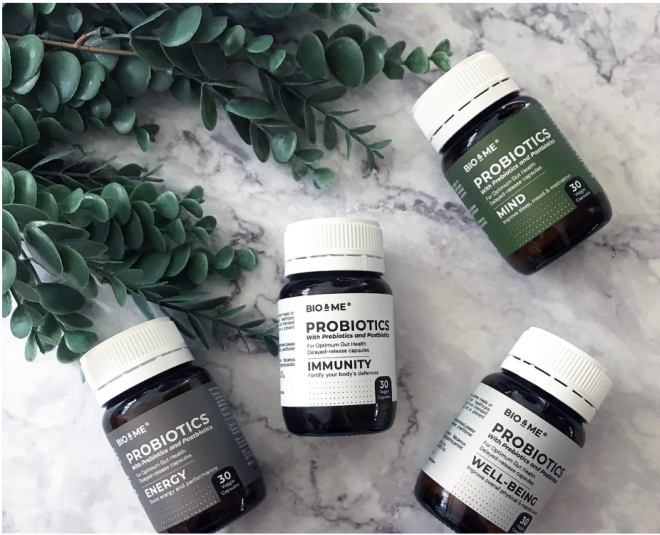
the Active Age (AA): What is the gut microbiome about?
Dr. Jeremy Lim (JL): The gut microbiome is the collective group of trillions of microorganisms – bacteria, viruses, fungi – living in our intestines together. Physically, the gut microbiome lining our intestines can weigh up to two kilograms – heavier than our brain.
AA: Why is it important to us? What does the gut microbiome impact (from a body function point of view)?
JL: In recent years, research has pointed to the microbiome having a significant impact on our gut-brain axes, immunity and metabolism. These discoveries have led to the microbiome being named the ‘second brain’ and ‘the forgotten organ’.
Our bodies are reliant on the microbiome to produce important metabolites that affect a range of functions – from digestion to mood, immune response to energy levels, glucose regulation to sleep!
We share a mutually beneficial relationship with the bacteria in our guts. They help with breaking down components of our meals and in return, the gut provides them with a hospitable environment to thrive. We do however need the microbiome more, for example, 95 percentof the serotonin needed by our body is produced by the gut microbiome! Maintaining a healthy and resilient microbiome is thus highly important for own health and well-being.
AA: What affects the gut microbiome? Is there a difference in microbiomes between Asians and non-Asians?
JL: The microbiome is highly controlled by our diets, environment and lifestyle. However, the food we eat disproportionately affects the composition of our guts.
Individuals from different geographies who eat different foods have varying levels of different bacteria.
Singapore, being a multi-ethnic society with diverse food habits has individuals with different microbiomes from someone from Europe or America.
We are closely studying these differences as most of the research that has been published in the last few years have been based on Caucasian data. These findings will be key in understanding health and well-being in Asia and throw more light on the research going on in the microbiome space.
AA: What are some common examples of issues/conditions caused by an unoptimised gut microbiome?
JL: The gut microbiome has been proven to play a central role in maintaining health and wellbeing, and in preventing diseases inside and outside the gut.
Gut health is influenced by the diversity of bacteria groups found in the microbiome. Common causes of low microbiome diversity include consuming a high-fat diet, antibiotics, stress, and illnesses.
The loss in microbiome diversity can impact how nutrients or toxins are absorbed, which could trigger inflammations and imbalances in the gut and beyond. This increases the risk for common conditions such as irritable bowel syndrome, diabetes, rheumatoid arthritis to anxiety.
AA: How does one go about improving the health/condition of our gut microbiome, from a lifestyle perspective?
JL: Healthy diet and lifestyle practices can improve the gut microbiome diversity. Having a balanced diet that consists of foods that are plant-based, high in fibre, or probiotic-containing foods will promote a healthy gut with a diverse community of microbes.
We like to use the 3F framework – Fresh, Fibre and Fermented. Along with the Rainbow Plate – make sure the foods on your plate have varied colours and different textures, this is a good rule of thumb to ensure a balanced and varied diet.
Probiotics are strains of bacteria that are beneficial to us. They maintain a balance between good gut bacteria and pathogens. This keeps the inner gastrointestinal ecosystem in shape. Probiotics can also be consumed in the form of fresh food or supplements. Some of the food items include yoghurt, tempeh, kimchi, miso, kombucha, pickles, and some cheeses.
Gut health tests are available to test the good and bad bacteria found in the gut. It also reveals the effectiveness of any diet and lifestyle changes, and opportunities to improve further.
BIO & ME offers Singapore’s first at-home Gut Health Test, where consumers can get a detailed report on the state of their gut health along with personalised recommendations on food and probiotics formulations.
Such tests not only reveal insights into our health, but also provide tailored recommendations on food and probiotics that can help us lead healthier lives.
Availability and pricing
BIO & ME offers Singapore’s first at-home Gut Health Test. Customers collect a small stool sample through a clean and non-invasive process and send it to the company for analysis. They will receive a report in three weeks that includes a comprehensive gut health analysis and report with recommendations on food and personalised probiotics formulation recommendation. The Gut Health Test is priced at SGD 228.
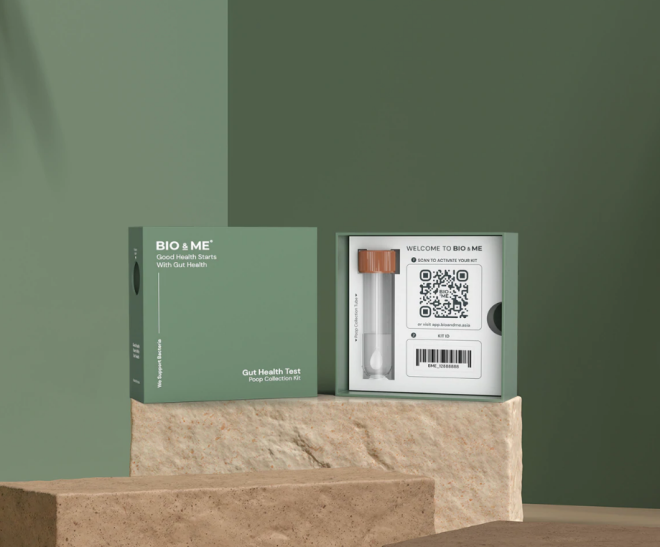
There is also a free BIO & ME’s Gut Health Predictor. This is a 3-minute survey that will provide immediate insights and recommendations on food and probiotics.
BIO & ME probiotics are available for SGD 88 for a 1-month supply and can be purchased from their website.
Images credit to BIO & ME

